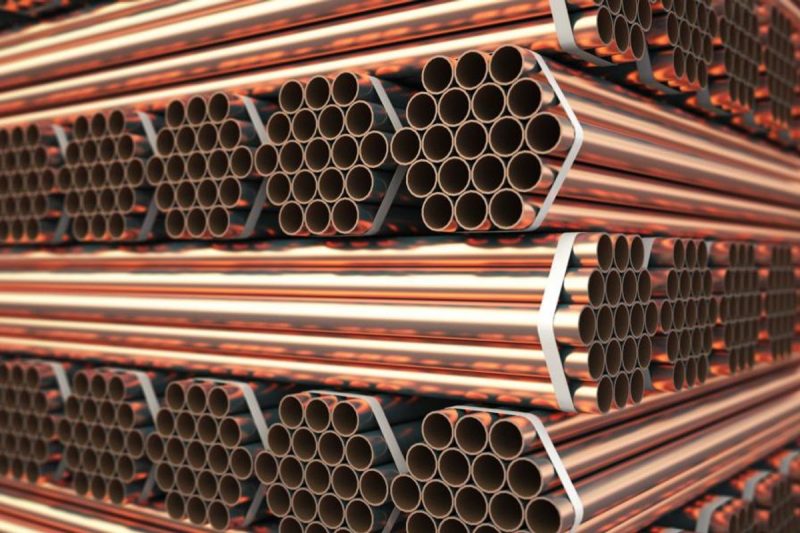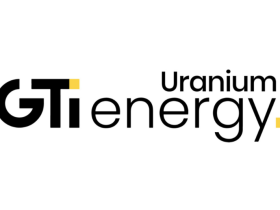Copper prices have faced volatility in 2023, ranging from less than US$8,000 per metric ton (MT) to above US$9,000.
The red metal is used heavily in construction and other industrial applications, and this year those areas have faced headwinds from recession concerns around the world, as well as uncertainty about China’s economic outlook. Even so, experts remain optimistic about the long-term outlook for copper, in part due to its growing role in the energy transition.
Against that backdrop, some copper-focused companies have seen positive momentum so far in 2023. The list below shows the top TSX-listed copper stocks by share price performance so far this year. It was generated on July 14, 2023, using TradingView’s stock screener, and includes companies with market caps above C$50 million at that time.
Read on to learn more about what’s been moving their share prices.
1. Ero Copper (TSX:ERO)
Year-to-date gain: 53.86 percent; market cap: C$2.71 billion; current share price: C$28.72
Ero Copper’s main asset is a 99.6 percent interest in Brazilian copper miner MCSA, which wholly owns the Caraíba operations. Caraíba includes both underground and open-pit mines, as well as a copper project. Ero also owns a 97.6 percent stake in NX Gold, the owner of the Xavantina operations, which encompass an operating gold-silver mine in Brazil.
Ero’s share price has trended steadily upward throughout the year, reaching a 2023 peak of C$29.33 on July 13. The company’s Q1 financial and operating results, released on May 8, show that it produced 9,327 MT of copper during the period, along with 12,443 ounces of gold, a new record. Ero confirmed its 2023 production, operating cost and capital expenditure guidance in that release.
Earlier in the year, on April 5, Ero shared an updated five year outlook. Among other points, the company indicates that its consolidated copper production is expected to rise about 125 percent from the levels seen last year to hit a range of 100,000 to 110,000 MT in 2025 — that’s up from the previous forecast of 92,000 to 102,000 MT. Meanwhile, Ero’s gold output is set to grow by around 40 percent from 2022 to come in at 55,000 to 60,000 ounces per year starting in 2024.
Ero’s share price reached its 2023 peak on July 13, hitting C$29.33.
2. Excelsior Mining (TSX:MIN)
Year-to-date gain: 53.13 percent; market cap: C$69.3 million; current share price: C$0.245
Excelsior Mining is a copper producer and explorer operating the Arizona-based Gunnison in-situ recovery copper project. In the same state, the company also has the past-producing Johnson Camp mine project, which it is currently working to bring back into production, as well as the Peabody Sill and Strong and Harris deposits.
Excelsior’s share price rose on the mid-January news of its collaboration with Rio Tinto (ASX:RIO,NYSE:RIO,LSE:RIO) venture Nuton, and it maintained that momentum through February 8, when it hit a year-to-date high of C$0.31. The companies’ relationship will involve testing Nuton’s advanced copper heap-leaching technologies at Johnson Camp with the possibility of a full deployment.
On February 22, Excelsior released a preliminary economic assessment (PEA) for Johnson Camp that incorporates sulfide leaching technology. According to the company, two developments will need to take place over the same time period in order to restart heap leaching at the mine: “pre-stripping and mine development, and the construction of a new heap leach pad, Pad 5.”
Excelsior put out news related to Gunnison on April 24, sharing that it had received a permit amendment that will allow well stimulation at the project. This could fundamentally change the performance of the wellfield, according to the company. The permit became effective as of May 26 following the expiration of an appeal period.
3. Faraday Copper (TSX:FDY)
Year-to-date gain: 46.43 percent; market cap: C$134.99 million; current share price: C$0.82
Faraday Copper is advancing its flagship Copper Creek project in Arizona, which it says has open-pit and bulk underground mining potential. The company also owns the Contact copper project in Nevada.
After jumping to start the year, Faraday’s share price saw another spike in early March after the company paid US$10 million for the Mercer Ranch land package, which consists of 6,000 acres that are contiguous and nearby Copper Creek. The land will continue to be operated by the Mercers for now, and the company sees several potential strategic benefits from the acquisition.
Faraday reached its highest share price so far this year on April 19, when it hit C$1.13. The jump came about two weeks before the company released a PEA and updated resource estimate for Copper Creek. The report shows that the asset has a post-tax net present value of US$713 million at a 7 percent discount, and an internal rate of return of 16 percent. Over its anticipated 32 year mine life, Copper Creek is seen producing a total of 3.4 billion pounds of payable copper equivalent metal.
Since the PEA’s release, Faraday has shared its financial results for Q1, and reported various sets of drill results from Copper Creek as part of a Phase 2 program examining the potential expansion of the property’s open-pit resources.
4. Lundin Mining (TSX:LUN)
Year-to-date gain: 32.82 percent; market cap: C$8.86 billion; current share price: C$11.30
Diversified base metals miner Lundin Mining has properties in a variety locations across the world. Operating in Argentina, Brazil, Chile, Portugal, Sweden and the US, the company produces copper, zinc, gold and nickel. Copper is Lundin’s main commodity, however, and in 2023 its production guidance is set at 296,000 to 325,000 MT of the red metal.
During the first quarter of the year, the company’s copper output came in at 61,462 MT, with CEO Peter Rockandel saying that Lundin is on track to deliver on its annual guidance for all metals and cash costs. He also highlighted a meaningful increase in zinc production thanks to the ramp-up of an expansion project at the Neves-Corvo mine in Portugal.
Other news from Lundin so far in 2023 includes the acquisition of a majority interest in the Caserones copper-molybdenum mine in Chile. The company announced the news on March 27, saying it had entered into a binding purchase agreement with JX Nippon Mining & Metals to acquire a 51 percent stake in SCM Minera Lumina Copper Chile, which operates Caserones. The purchase closed on July 13, and Lundin’s share price rose to its highest level so far this year on July 12, when it reached C$11.56.
5. Capstone Copper (TSX:CS)
Year-to-date gain: 28.44 percent; market cap: C$4.45 billion; current share price: C$6.44
Copper producer Capstone Copper has centered its efforts on the Americas, with operating mines and exploration assets located in the US, Mexico and Chile. Although copper is its main focus, its properties also host silver and gold.
At the beginning of the year, the company announced 2023 production guidance of 170,000 to 190,000 MT of copper, and it reaffirmed that plan on May 3, when it released its results for the first quarter. At 40,700 MT, output for the period was lower than expected due to unfavorable weather at Pinto Valley and maintenance downtime at Mantos Blancos, but CEO John MacKenzie said he anticipates production to increase sequentially moving forward with costs decreasing.
Capstone shares rose to C$7.21, their highest level so far in 2023, on April 18, and reached their lowest level of C$5.17 on May 25.
FAQs for investing in copper
Is copper a good investment in 2023?
As of midway through 2023, copper’s price was up slightly from the end of 2022. Although many experts have a positive long-term outlook for the red metal based on supply concerns and its growing role in the energy transition, recession worries in countries across the globe are creating short-term headwinds for copper, which is heavily used in industry.
Investors who are interested in copper should make sure to perform their due diligence, as the volatility and unpredictability of markets and economies at the moment means that nothing is guaranteed.
What is copper used for?
Copper is used in many industries, from construction to electronics to medical equipment. In fact, in 2020, 32 percent of copper globally was used in equipment manufacturing and 28 percent in building construction.
Two other growing sectors for copper are the burgeoning electric vehicle and green energy industries. Electric vehicles require a significant amount of the red metal per vehicle.
How to invest in copper?
Investors can get exposure to copper in a variety of ways. Holding physical copper is possible, but plenty of storage would be required to hold any significant value of the metal.
For investors looking to invest in the metal without physically holding it, there are a few options. Copper stocks such as those on the TSX, TSXV and ASX are worth looking at. Additionally, there are copper exchange-traded funds and the copper options and futures markets on the London Metal Exchange
How to invest in a copper ETF?
Copper exchange-traded funds (ETFs) can be a good way to diversify an investment portfolio, and they can be a more stable option compared to individual copper miners or explorers. There are multiple options available on the market, and they can usually be purchased in the same way one could purchase stocks through a broker or trading platform.
In May 2022, Horizons launched Canada’s first copper equities ETF, the Horizons Copper Producers Index ETF (TSX:COPP), which is focused solely on pure-play and diversified copper-mining companies.
There are two ETFs available on the US ARCA exchange as well. The Global X Copper Miners ETF (ARCA:COPX) tracks the Solactive Global Copper Miners Index, which includes copper miners, as well as copper explorers and developers. The other option is the United States Copper Index Fund (ARCA:CPER), which gives investors exposure to copper futures contracts by tracking the SummerHaven Copper Index Total Return (INDEXNYSEGIS:SCITR).
How much is copper worth?
The copper price is tracked in two ways: COMEX copper and London Metal Exchange (LME) copper. The COMEX and LME are both options and futures metal exchanges, with the former being headquartered in New York and the latter in London. COMEX copper is priced by the pound, while LME copper is priced per MT.
Copper saw historically high prices in the first half of 2022, and although it fell in the second half, 2023 has seen them move back up. In Q1 and into Q2, copper prices on the COMEX ranged between US$3.74 and US$4.27 and for the same time period on the LME, copper moved between US$8,200 and US$9,436.
Where is copper mined and how is it processed?
Copper is mined throughout the world, with significant production found on every continent besides Antarctica. Chile was the top producer in 2022, putting out 5.2 million MT of the metal. Rounding out the top five are Peru and the Democratic Republic of Congo with 2.2 million MT each, China with 1.9 million MT and the US with 1.3 million MT.
Once copper is mined, the ore goes through multiple steps to reach a market-ready state. First, the ore is ground to roughly separate the rock from the copper, as copper typically only makes up 1 percent of the mined rock.
The resultant copper is then slurried with water and chemical reagents, after which air is used to float the copper to the top of the mixture. After the copper is removed from this, it is typically at 24 to 40 percent purity.
Article by Charlotte McLeod; FAQs by Lauren Kelly.
Securities Disclosure: I, Charlotte McLeod, hold no direct investment interest in any company mentioned in this article.
Securities Disclosure: I, Lauren Kelly, hold no direct investment interest in any company mentioned in this article.





